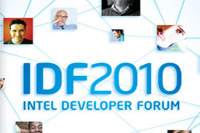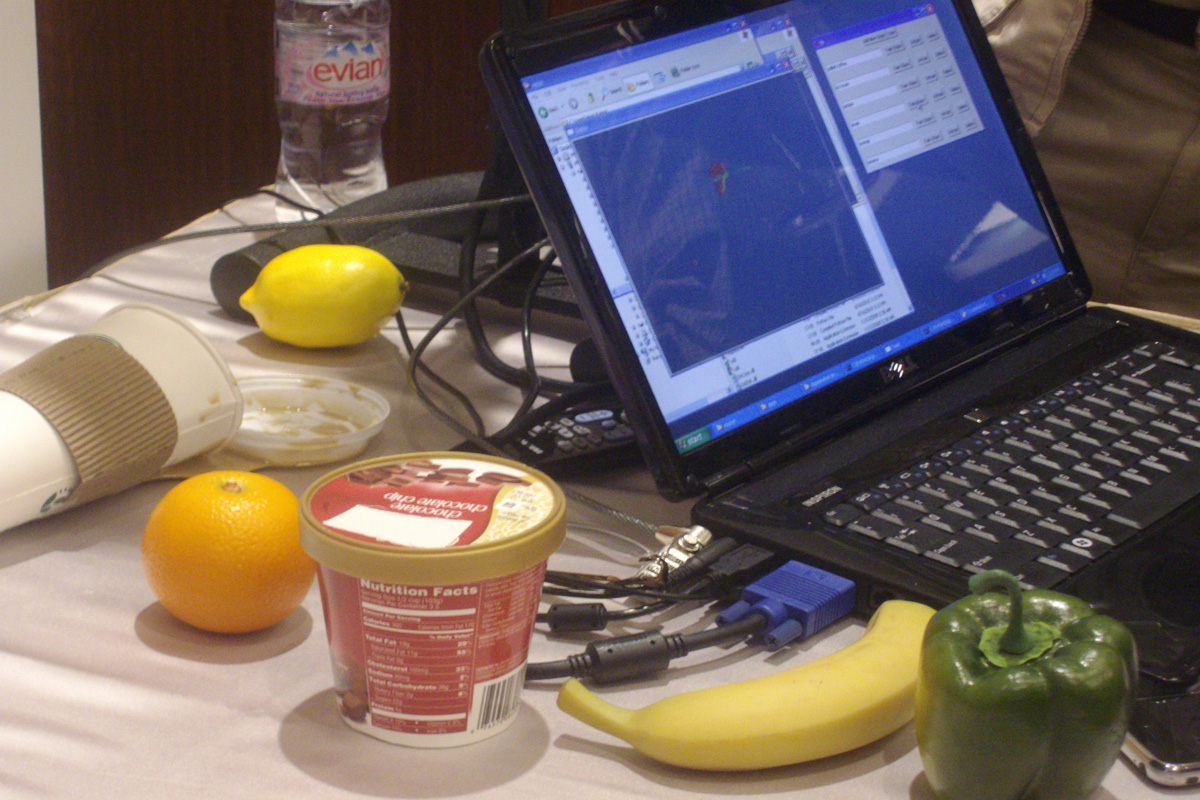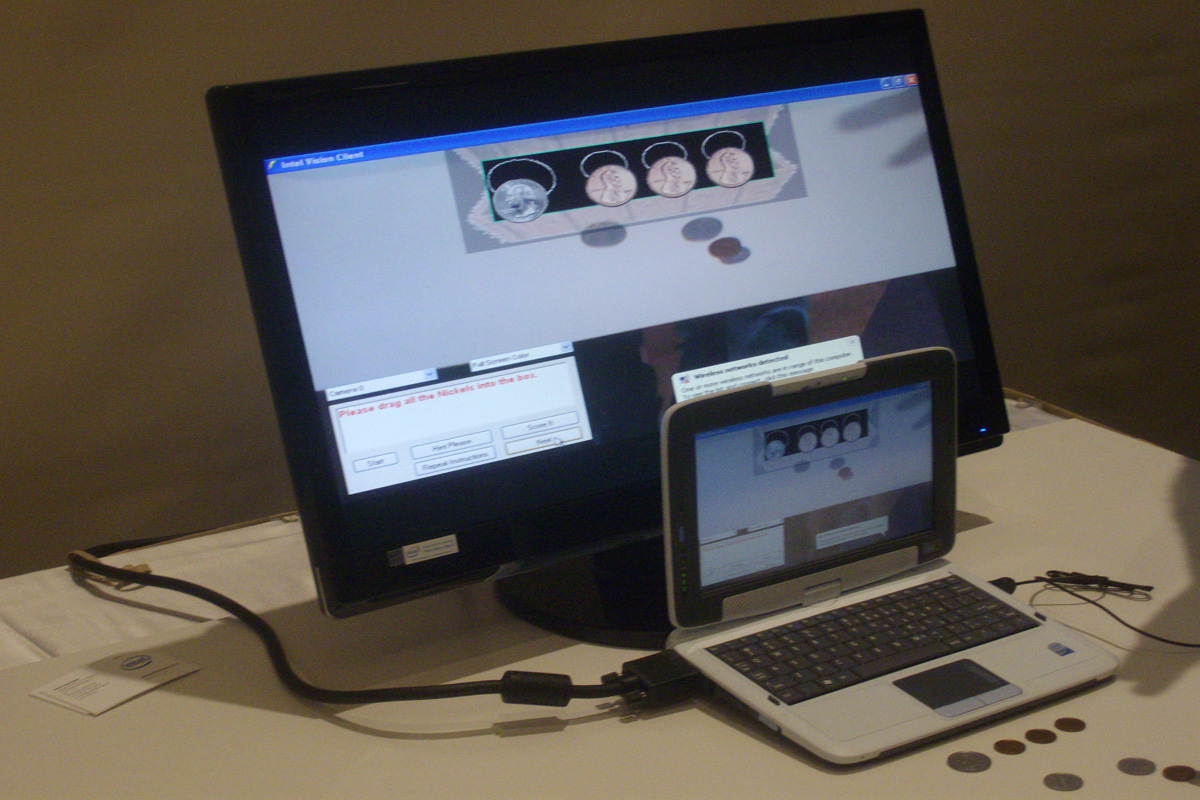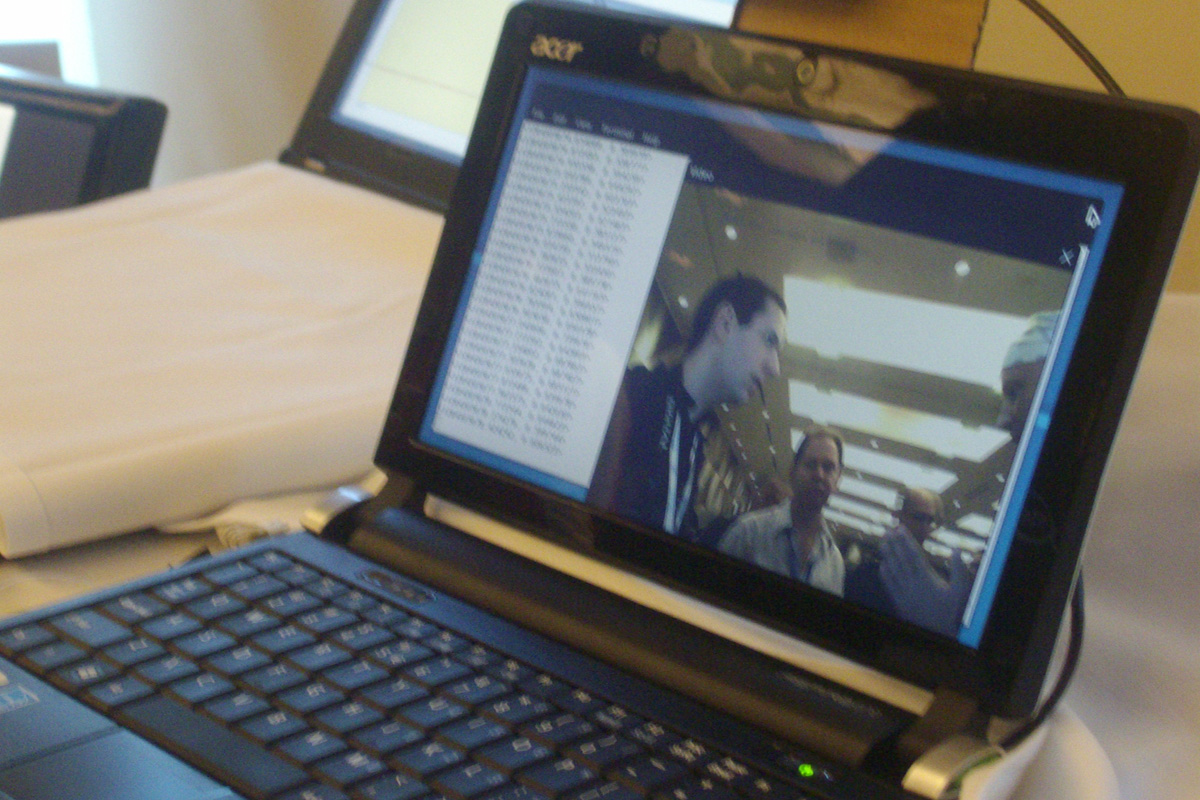IDF 2010: A glimpse at Intel's R&D efforts
The day before Intel's annual developer conference kicks off, the company gave us a sneak peak on what it is working on.


Sign up today and you will receive a free copy of our Future Focus 2025 report - the leading guidance on AI, cybersecurity and other IT challenges as per 700+ senior executives
You are now subscribed
Your newsletter sign-up was successful
A throng of technologists have gathered in San Francisco this week to see what new offerings Intel is set to unleash on the market at the Intel Developer Forum (IDF).
On the day before the conference gets into full swing, IT PRO[/] took a look on some of the new technologies it is working on in its labs.

1. A new project called OASIS enables objects to be recognised and made into virtual objects by a computer. Users are then able to play with the objects merely by using hand gestures.

2. A similar project to OASIS, Classmate Assist enables students to control computers via gestures for more interactive learning.

3. Intel revealed it is working on several facial recognition products, aiming to help both the business world and consumers.
Sign up today and you will receive a free copy of our Future Focus 2025 report - the leading guidance on AI, cybersecurity and other IT challenges as per 700+ senior executives
Jennifer Scott is a former freelance journalist and currently political reporter for Sky News. She has a varied writing history, having started her career at Dennis Publishing, working in various roles across its business technology titles, including ITPro. Jennifer has specialised in a number of areas over the years and has produced a wealth of content for ITPro, focusing largely on data storage, networking, cloud computing, and telecommunications.
Most recently Jennifer has turned her skills to the political sphere and broadcast journalism, where she has worked for the BBC as a political reporter, before moving to Sky News.
-
 AI and Sustainability: The dual forces reshaping the data center ecosystem - and the channel opportunity ahead
AI and Sustainability: The dual forces reshaping the data center ecosystem - and the channel opportunity aheadIndustry Insights Data centers face power and sustainability limits, creating new opportunities for channel partners
-
 ITPro Excellence Awards winners unveiled
ITPro Excellence Awards winners unveiledIt's time to celebrate excellence in IT. Read on for the full list of winners...
